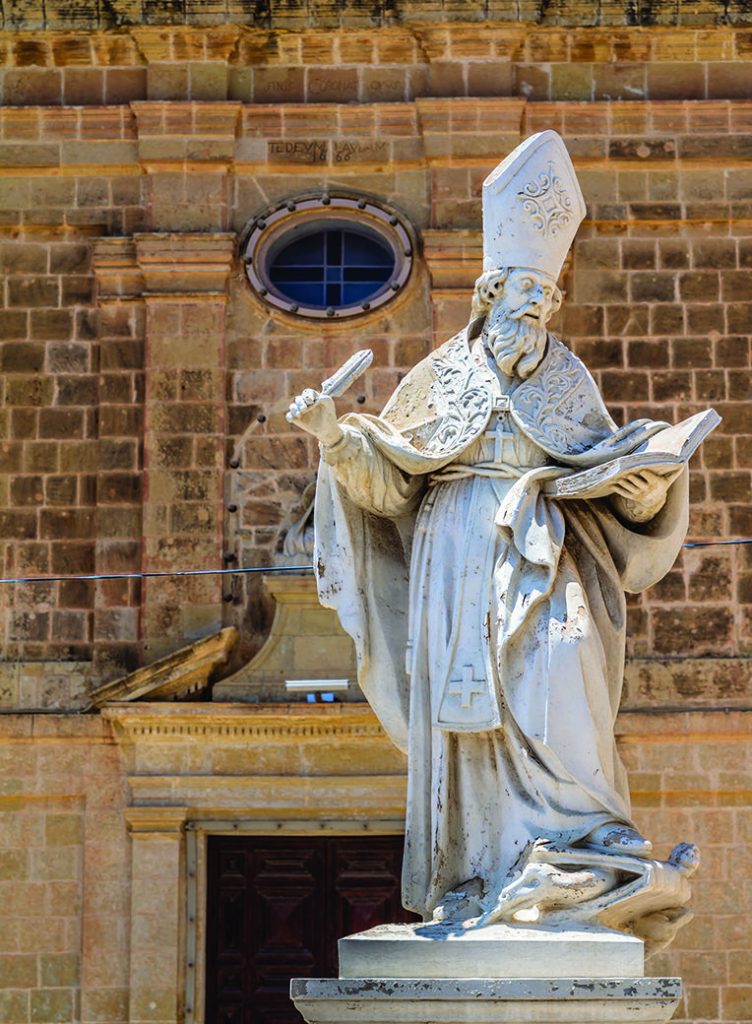“Because, my God, though I lack the soul-zeal and the sublime integrity of your saints, I yet have received from you an overwhelming sympathy for all that stirs within the dark mass of matter; because I know myself to be irremediably less a child of heaven and a son of earth.”
Pierre Teilhard de Chardin wrote those words and they, like St. Augustine’s famous opening in his “Confessions,” not only describe a lifelong tension inside its author, they name as well the foundational pieces for an entire spirituality. For everyone who is emotionally healthy and honest, there will be a lifelong tension between the seductive attractions of this world and the lure of God.
The Earth, with its beauties, its pleasures, and its physicality, can take our breath away and have us believe that this world is all there is, and that this world is all that needs to be. Who needs anything further? Isn’t life here on earth enough? Besides, what proof is there for any reality and meaning beyond our lives here?
But even as we are so powerfully, and rightly, drawn to the world and what it offers, another part of us finds itself also caught in the embrace and the grip of another reality — the divine, which though more inchoate, is not less unrelenting.
It too tells us that it is real, that its reality ultimately offers life, that it also should be honored, and that it also may not be ignored. And, just like the reality of the world, it too presents itself as both promise and threat.
Sometimes it’s felt as a warm cocoon in which we sense ultimate shelter and sometimes we feel its power as a threatening judgment on our superficiality, mediocrity and sin. Sometimes it blesses our fixation on earthly life and its pleasures and sometimes it frightens us and relativizes both our world and our lives.
We can push it away by distraction or denial, but it stays, creating always a powerful tension inside us: We are irremediably children of both heaven and earth; both God and the world have a right to our attention.
That’s how it’s meant to be.
God made us irremediably physical, fleshy, earth-oriented, with virtually every instinct inside us reaching for the things of this earth. We shouldn’t then expect that God wants us to shun this earth, deny its genuine beauty and attempt to step out of our bodies, our natural instincts and our physicality to fix our eyes only on the things of heaven.
God did not build this world as a testing-place, a place where our obedience and piety is to be tested against the lure of earthly pleasure, to see if we’re worthy of heaven. This world is its own mystery and has its own meaning, a God-given one.
It’s not simply a stage upon which we, as humans, play out our individual dramas of salvation and then close the curtain. It’s a place for all of us, humans, animals, insects, plants, water, rocks and soil to enjoy a home together.
But that’s the root of a great tension inside us: Unless we deny either our most powerful human instincts or our most powerful religious sensibilities, we will find ourselves forever torn between two worlds, with seemingly conflicting loyalties, caught between the lure of this world and the lure of God.
I know how true this is in my own life. I was born into this world with two incurable loves and have spent my life and ministry caught and torn between the two: I have always loved the pagan world for its honoring of this life and for its celebration of the wonders of the human body and the beauty and pleasure that our five senses bring us.
With my pagan brothers and sisters, I too honor the lure of sexuality, the comfort of human community, the delight of humor and irony and the remarkable gifts given us by the arts and the sciences.
But, at the same time, I have always found myself in the grip of another reality — the divine, faith, religion. Its reality too has always commanded my attention — and, more importantly, dictated the important choices in my life.
My major choices in life incarnate and radiate a great tension because they’ve tried to be true to a double primordial branding inside me, the pagan and the divine. I can’t deny the reality, lure and goodness of either of them.
It’s for this reason that I can live as a consecrated, lifelong celibate, doing religious ministry, even as I deeply love the pagan world, bless its pleasures and bless the goodness of sex even as, because of other loyalties, I renounce it.
That’s also the reason why I’m chronically apologizing to God for the world’s pagan resistance, even as I’m trying to make an apologia for God to the world. I’ve lived with torn loyalties.
That’s as it should be. The world is meant to take our breath away, even as we genuflect to the author of that breath.

